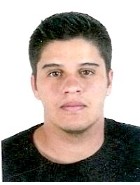“Working in the marketing department of a large company is the goal of many business school students.”
Nice Premium: Introduce us to the company you work for and your role within it?
 Dominique Gastaldi: Altadis was born from the French company SEITA and the Spanish company TABACALERA and is dedicated to tobacco manufacturing. Altadis has a substantial brand portfolio in the cigarette market (Fortuna, Gauloises, Gitanes, Nobel, Ducados, News, BN, etc.) and cigars (Montecristo, Romeo y Julieta, Fleur de Copan, VegaFina, etc.). Distribution is Altadis’ third significant business sector through its subsidiary Logista. The cigarette marketing department of Altadis in Spain is divided between the Trade Marketing team and the Brand Marketing teams. I work in the brands section (Brand) for Altadis’ leading brand in the blond cigarette market in Spain, Fortuna. I am an assistant product manager for this brand in the Spanish market. We are a team of five: one brand manager, three product managers, and an assistant product manager. We are responsible for planning and organizing the brand’s activities throughout the year: promotions, limited editions, catalogs, POS materials, budgets, etc. In summary, we develop the marketing plan and implement it throughout the year.
Dominique Gastaldi: Altadis was born from the French company SEITA and the Spanish company TABACALERA and is dedicated to tobacco manufacturing. Altadis has a substantial brand portfolio in the cigarette market (Fortuna, Gauloises, Gitanes, Nobel, Ducados, News, BN, etc.) and cigars (Montecristo, Romeo y Julieta, Fleur de Copan, VegaFina, etc.). Distribution is Altadis’ third significant business sector through its subsidiary Logista. The cigarette marketing department of Altadis in Spain is divided between the Trade Marketing team and the Brand Marketing teams. I work in the brands section (Brand) for Altadis’ leading brand in the blond cigarette market in Spain, Fortuna. I am an assistant product manager for this brand in the Spanish market. We are a team of five: one brand manager, three product managers, and an assistant product manager. We are responsible for planning and organizing the brand’s activities throughout the year: promotions, limited editions, catalogs, POS materials, budgets, etc. In summary, we develop the marketing plan and implement it throughout the year.
NP: How long have you held this position?
DG: I joined Altadis on September 3, 2007, so it’s been two months. It’s recent!
NP: What have you done since leaving school? What is your professional background?
DG: I graduated from IPAG Nice in 2005. I was looking for a job abroad, and thanks to a contact, I had the opportunity to go to Spain and work for the marketing department of an SME that manufactures contact lenses: mark’ennovy Personalized Care. I started as a marketing assistant. After a few months, I was handling the responsibilities of a marketing assistant and product manager before becoming a full-time product manager. After 1 year and 10 months at mark’ennovy Personalized Care, I felt the need for change and wanted to join a large organization. I started looking for another job, still in Madrid, but focusing on large companies. I got in touch with Altadis by responding to a job offer on the website www.infojobs.net. After going through three interviews this summer, I was finally selected for the position of assistant product manager for the Fortuna brand in Spain.
NP: Have you always wanted to pursue this career, or was it the result of opportunities?
DG: Working in the marketing department of a large company is, I think, the goal of many business school students. After working as a product manager at mark’ennovy Personalized Care, continuing in the same direction seemed the most logical and feasible path. It would have been much more difficult to enter a market research department, for example.
NP: What is your educational background? What degree(s) have you earned?
DG: I passed a Bac ES and then joined IPAG Nice, which gave me the opportunity to spend a semester in Italy and another in the United States.
NP: What is the perception of students from your former school in your professional field?
DG: IPAG (like other French schools) is not well-known in Spain, especially outside the circle of French companies. It is therefore preferable to leverage one’s ability to speak English and French or one’s international experiences over the value of one’s school, which in most cases will not be known to the employer. However, IPAG’s partner universities in Madrid are all very well-known and are a mark of good quality.
NP: What advice would you give to students considering a career in your sector? In your opinion, is it better to start with SMEs or large organizations?
DG: It’s a bit overwhelming for everyone when they finish university. I think initially a young graduate should be ready to go abroad. Wanting to stay in France significantly reduces one’s opportunities. Plus, an experience abroad is highly valued by employers when returning to France. In the long term, everyone would like to aspire to responsibilities in a large group. For this reason, if right out of school it is possible to join a multinational, it is worth taking the risk, because even with little experience, you are sure to receive high-level training. However, joining an SME is not a failure, far from it. This type of company also allows for tremendous learning and above all, taking on significant responsibilities more quickly. Additionally, nowadays SMEs are also international. However, I think 2 or 3 years are enough before taking the step to join a large group. It will then be easier to move from one large structure to another!
NP: Why did you choose to pursue an international career?
 DG: I repeat: wanting to stay in France reduces your opportunities. The job market in France is already a bit saturated in certain sectors and centralized in Paris according to branches. In contrast, foreign markets welcome expatriates with open arms, especially in Asia. And then an experience abroad opens many doors upon returning to France as you acquire fluency in one (or more) language(s), adaptability, an open mind, different working methods…
DG: I repeat: wanting to stay in France reduces your opportunities. The job market in France is already a bit saturated in certain sectors and centralized in Paris according to branches. In contrast, foreign markets welcome expatriates with open arms, especially in Asia. And then an experience abroad opens many doors upon returning to France as you acquire fluency in one (or more) language(s), adaptability, an open mind, different working methods…
NP: What are your current prospects for career advancement, your professional aspirations?
DG: I just joined Altadis. I hope to quickly progress and become a product manager for the Fortuna brand. In the longer term, the company offers many opportunities in Spain or abroad. If I have the possibility, I intend to stay a few years at Altadis. However, nothing is predictable, and you have to be able to accept unforeseen changes to evolve!


